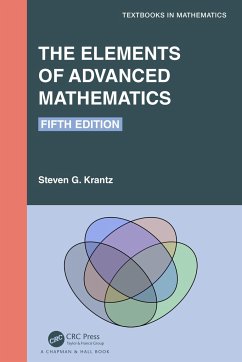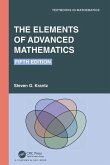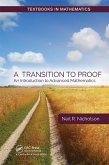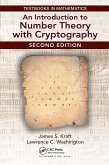This book has enjoyed considerable use and appreciation during its first four editions. With hundreds of students having learned out of early editions, the author continues to find ways to modernize and maintain a unique presentation.
What sets the book apart is the excellent writing style, exposition, and unique and thorough sets of exercises. This edition offers a more instructive preface to assist instructors on developing the course they prefer. The prerequisites are more explicit and provide a roadmap for the course. Sample syllabi are included.
As would be expected in a fifth edition, the overall content and structure of the book are sound.
This new edition offers a more organized treatment of axiomatics. Throughout the book, there is a more careful and detailed treatment of the axioms of set theory. The rules of inference are more carefully elucidated.
Additional new features include:
An emphasis on the art of proof.
Enhanced number theory chapter presents some easily accessible but still-unsolved problems. These include the Goldbach conjecture, the twin prime conjecture, and so forth.
The discussion of equivalence relations is revised to present reflexivity, symmetry, and transitivity before we define equivalence relations.
The discussion of the RSA cryptosystem in Chapter 8 is expanded.
The author introduces groups much earlier. Coverage of group theory, formerly in Chapter 11, has been moved up; this is an incisive example of an axiomatic theory.
Recognizing new ideas, the author has enhanced the overall presentation to create a fifth edition of this classic and widely-used textbook.
What sets the book apart is the excellent writing style, exposition, and unique and thorough sets of exercises. This edition offers a more instructive preface to assist instructors on developing the course they prefer. The prerequisites are more explicit and provide a roadmap for the course. Sample syllabi are included.
As would be expected in a fifth edition, the overall content and structure of the book are sound.
This new edition offers a more organized treatment of axiomatics. Throughout the book, there is a more careful and detailed treatment of the axioms of set theory. The rules of inference are more carefully elucidated.
Additional new features include:
An emphasis on the art of proof.
Enhanced number theory chapter presents some easily accessible but still-unsolved problems. These include the Goldbach conjecture, the twin prime conjecture, and so forth.
The discussion of equivalence relations is revised to present reflexivity, symmetry, and transitivity before we define equivalence relations.
The discussion of the RSA cryptosystem in Chapter 8 is expanded.
The author introduces groups much earlier. Coverage of group theory, formerly in Chapter 11, has been moved up; this is an incisive example of an axiomatic theory.
Recognizing new ideas, the author has enhanced the overall presentation to create a fifth edition of this classic and widely-used textbook.
The great strength of the book overall and of the chapters I read is a very accessible writing style, and extremely good exercises. The mix of discussion of advanced topics alongside the presentation of more elementary material is excellent. This is a product of having a highly accomplished and knowledgeable mathematician writing a textbook intended for not-so-advanced students.--David Walnut, George Washington University








